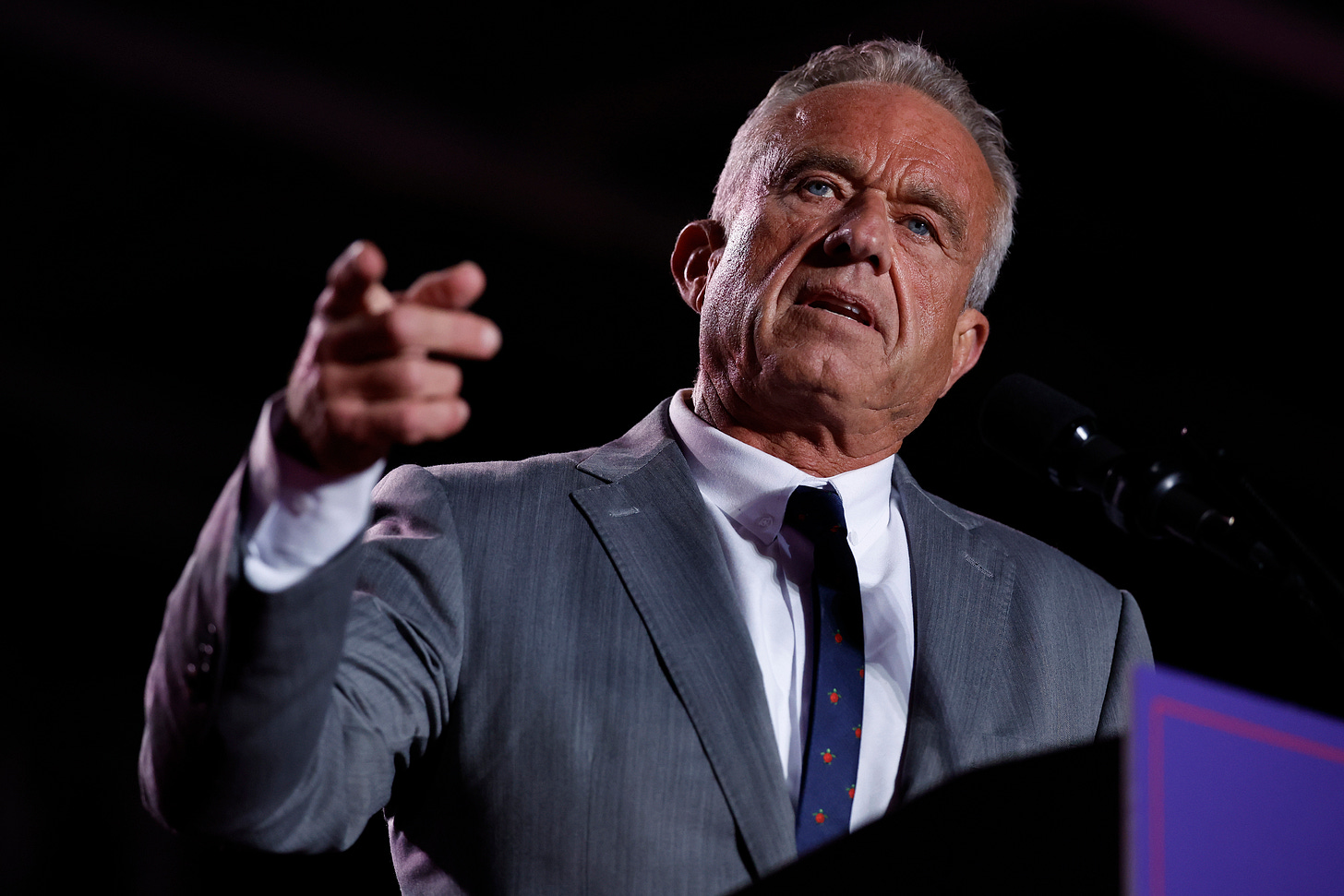RFK’s Views on Guns Might Rankle Republicans
But his views on vaccines remain the biggest obstacle to his confirmation

While endearing himself to MAGA, Robert F. Kennedy Jr. has shrugged off a lot of what made him a Democrat, picked up straightforwardly Republican policies, and held on to a number of fringe ideas, which he seeks to use the GOP as a tool for implementing if he gets confirmed as secretary of health and human services. But one fairly standard Democratic belief he still holds is that American gun violence should be understood as a public health issue.
“We have mass shootings every 21 hours. The question is: Why is that happening?” Kennedy said in an interview with Glenn Beck. “NIH is—under its own rules—is not allowed to look for the answer to that question,” Kennedy remarked, referring to the National Institutes of Health, which is a sub-agency of HHS.
Kennedy’s assertion that the NIH is prohibited from studying gun violence is flat-out false. In 1996, Congress passed an amendment in one of the annual funding bills that stipulated “None of the funds made available for injury prevention and control at the Centers for Disease Control and Prevention may be used to advocate or promote gun control.” (NIH and the CDC are distinct agencies with somewhat overlapping missions.) But in 2018, after the Marjory Stoneman Douglas High School shooting, Congress made clear that this sentence should not be interpreted to mean that studies on gun violence can’t be conducted. Since then, research has been underway. Both the CDC and NIH awarded grants for gun violence studies in 2020, for example.
Kennedy, who famously lost both his father and uncle to gun-wielding assassins1, also seems to believe some outside influence is being brought to bear by one of the power player industries, like food producers or pharmaceuticals, to prevent the research that is, again, already happening.
“There’s a lot of things NIH won’t do,” Kennedy added. “NIH won’t look for the cause of the autism epidemic. They won’t look for the cause of peanut allergies. They won’t look at any of these things, because they’re frightened that there’s a big shot, a big food processor, big [agriculture], big pharma that is going to be angry at them at the answer. So they simply won’t do it.”


